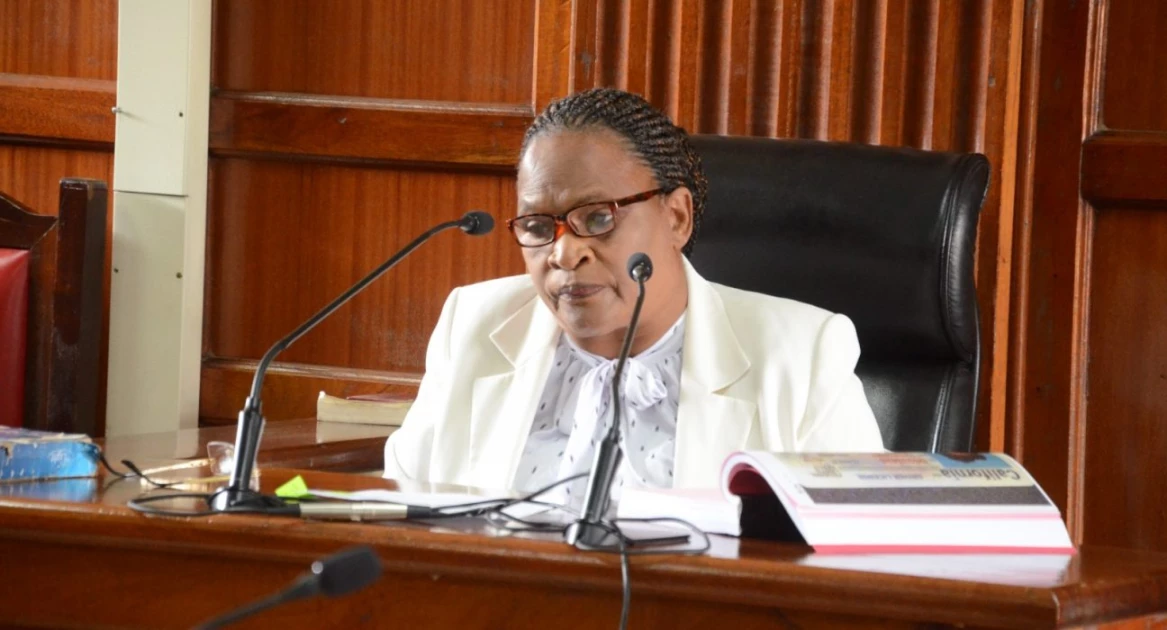Co-wives threatened me after discovering my marriage to Nyachae; Chweya tells court

File image of Margaret Chweya in a previous court session.

Audio By Vocalize
Chweya, through her filings, claims she was married to Nyachae under Gusii customary law and that she and her children are entitled to an equal share of the estate under Sections 26 and 29 of the Law of Succession Act.
She alleges that she and her children faced threats, including attempts at poisoning, from co-wives after her marriage to Nyachae was discovered.
These incidents, she said, forced her to relocate to the United States, where Nyachae continued to provide for her and their children, including purchasing property in Loresho, Nairobi, and sending funds for their upkeep.
Chweya, through lawyer Danstan Omari also claims that she assisted in Nyachae’s care during his illness and that she was recognized as family during his burial, arguing that she and her children are legitimate dependents entitled to reasonable provision from the estate.
She dismissed claims that she had prior marriages as “frivolous and aimed at disenfranchising” her and her children.
In response, Charles Nyachae and other family representatives argue that Chweya’s application is legally flawed and should be dismissed.
They contend that the filings, submitted after probate was granted in May 2022, do not constitute a valid objection under the Law of Succession Act.
The family further challenged the claims of Chweya’s children, with one child, Patricia Chweya, later admitting in court that Nyachae was not her father and that documents allegedly linking her to the estate had been forged.
The court now faces the task of determining whether Margaret Chweya and her children qualify as dependents under Section 26 of the Law of Succession Act, and whether they are entitled to a portion of the late minister’s estate.


Leave a Comment